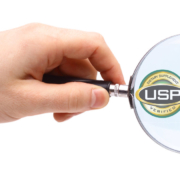Teaching Doctors About Supplements, But Not Really
If you haven’t watched the videos that I talked about Tuesday, please take the time to watch them, preferably before you continue reading—I’d like you to form your own opinion about the videos before you get my perspective. I came away with three opinions about the videos, other than they really focused on dietary supplements not being approved by the FDA. Of course, no legitimate healthcare professional or supplement manufacturer ever said they were; consumers may not know that, but I would hope doctors did.
First, the second video discussed potential drug-supplement interactions. There have been few direct studies on those interactions; most are case studies involving the use of herbs such as St. John’s wort and ginkgo biloba that have been published in peer-reviewed journals. What they don’t say is that very few studies have examined drug-drug interactions either. How do they find out about them? Trial and error from reports to the FDA’s adverse effects reporting system.
That addresses my second opinion. There was a strong focus on reporting adverse events from dietary supplements to the FDA. One would think that’s a good thing, but the list of adverse events they listed included every system in the body. I get reporting an allergic reaction, but how would a physician attribute gastrointestinal or cardiovascular issues to a dietary supplement after putting the person on a new medication? It’s just as likely to be due to the medication. Seems to me like an open door to lots of irrelevant reports.
Finally, they spoke about some supplements interacting with blood tests. The only one I’m aware of is excessive biotin intake affecting the troponin test for potential cardiac events. One would expect an extensive list would be provided; the problem is none exists because that’s the only known interaction.
The Bottom Line
There are 13 vitamins. There are dozens of minerals, most found in trace amounts. There are hundreds of herbs, plus nutrients that don’t fall into any of those categories. All can be found in dietary supplements. If I were a physician who spent time watching the videos, I really wouldn’t know more about those nutrients in supplements than I did before I watched. I would have learned only two things:
- The FDA does not have the authority to approve dietary supplements.
- If a patient takes dietary supplements, anything bad that happens in the body should be reported as an adverse event.
A lot of red flags were waved when the issues deserved a yellow flag at most. I can think of only one word: sad. With the lack of training and knowledge about supplements among doctors, I think those two organizations could have spent their money better and created videos that would have really helped doctors and their patients.
What are you prepared to do today?
Dr. Chet
References:
1. https://www.youtube.com/watch?v=GYJYPCJmspE
2. https://www.youtube.com/watch?v=qqyP-vbtlZY









